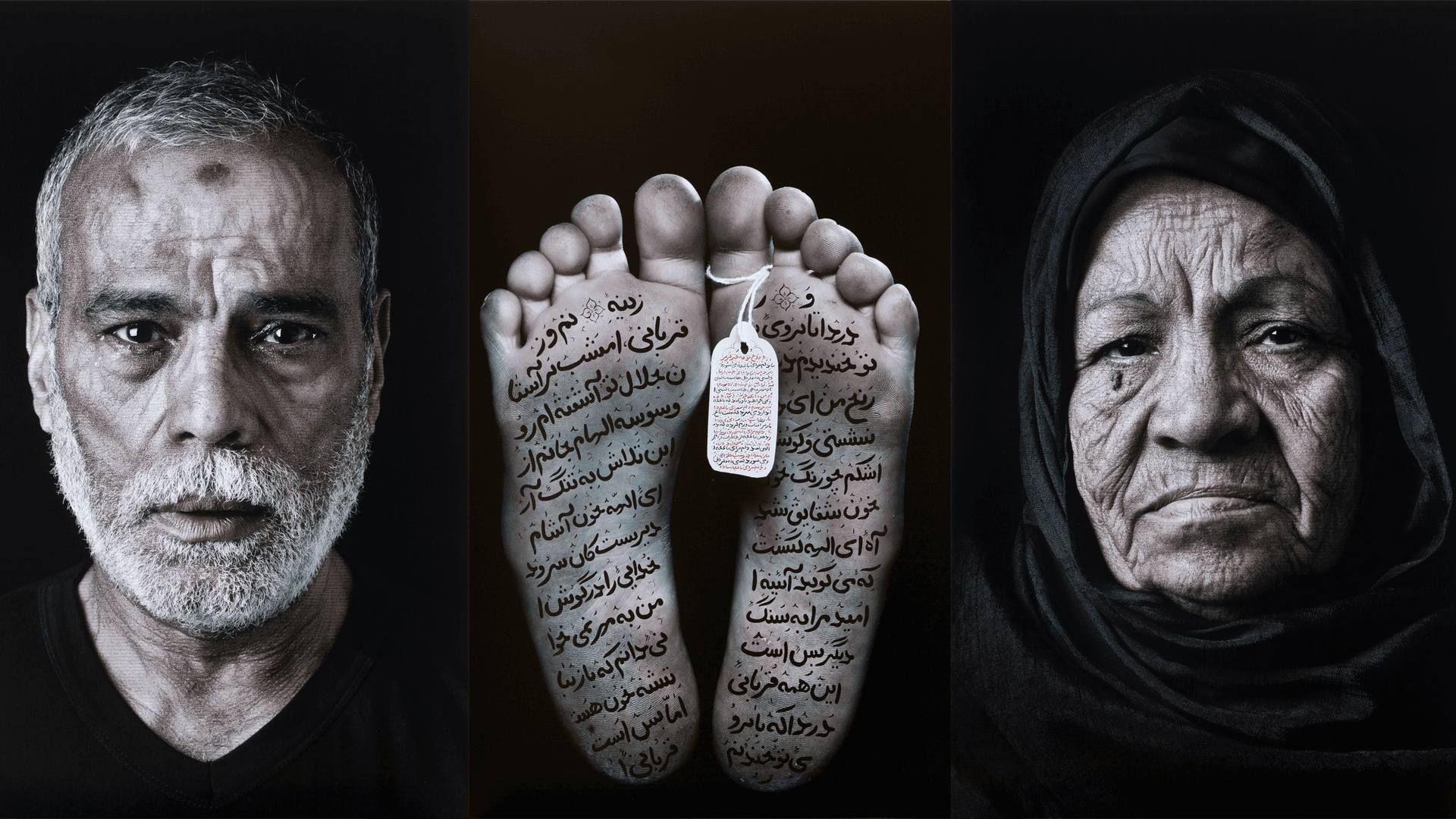An Iranian photographer captures the toll Egypt’s revolution has taken on the poor
Artist Shirin Neshat captures portraits of Egypt’s impoverished elderly community and the dead in its morgues in her new exhibit, Our House is on Fire.
These are the faces of the revolution in Egypt that are never seen. They are not the combatants, but the world-weary faces of Egypt's aging poor.
“They have perhaps lost their children in this process of revolution, or have seen catastrophic violent events, before their eyes,” Shirin Neshat explains. The Iranian photographer decided to document Egypt's revolution through the eyes of the loved ones, often parents, who are left behind. Her new exhibition is called "Our House is on Fire."
“In principle, I think that as people get old, they no longer look so much into the future, but the past,” Neshat says. “As you get older and you have experienced the passage of time, you realize the sense of loss in all these different dimensions.”
Neshat found her subjects with the help of her building's janitor in Cairo, who also became one of the portraits in the series.
“I asked him if he could help us by recruiting the people, of his friends, his community, the street peddlers, to people who were mechanics, people who had small jobs to survive, or even housewives or grandmothers,” she says.
Neshat also told the story of Egypt's revolution through the dead. She spent time at the morgues, documenting the feet of bodies carried in.
“One after another, images of people that were dead in the morgue, and their feet with a simple tag between their feet, that sort of identified who they were,” Neshat says. “I found these images so disturbing in the way that, at the end, your life is reduced to this little tag that identifies you.”
The images are in Neshat’s signature style of black-ink calligraphy, inscribed on a photographic image. Neshat’s previous exhibit, “The Book of Kings,” looked at revolution and change through the lens of a younger generation.
And the artist says the calligraphy in the photos isn’t just for texture.
“The poetry that is used sort of transcends the political dimension of the work, and brings the humanity, the poetry of all of the subjects to me,” Neshat says.
A previous version of this story incorrectly stated Shirin Neshat's nationality.
We want to hear your feedback so we can keep improving our website, theworld.org. Please fill out this quick survey and let us know your thoughts (your answers will be anonymous). Thanks for your time!
